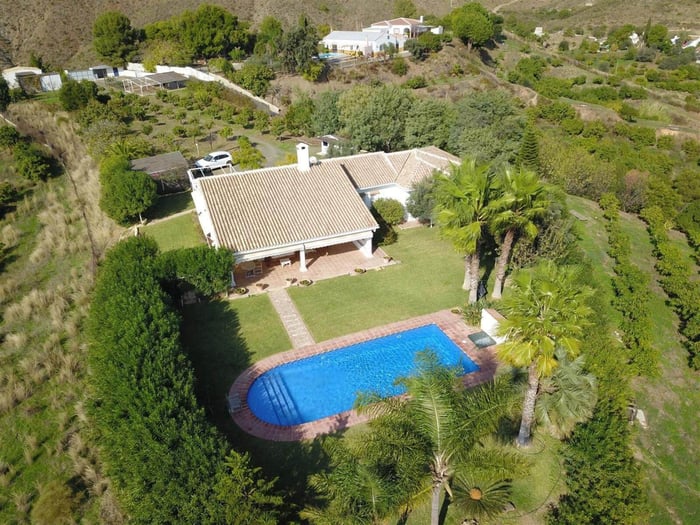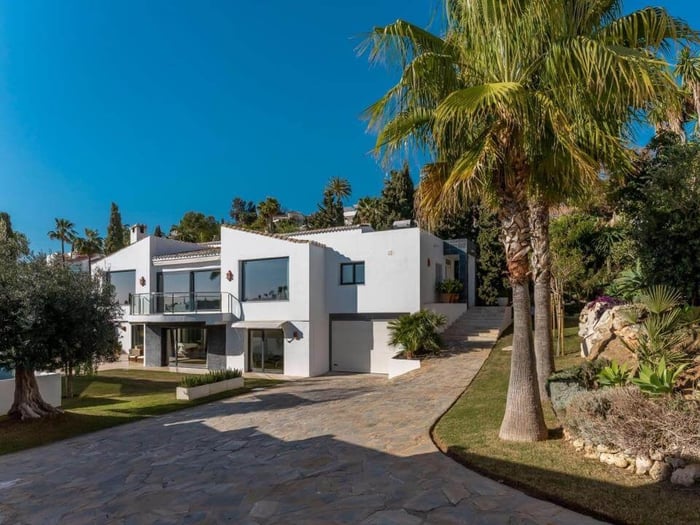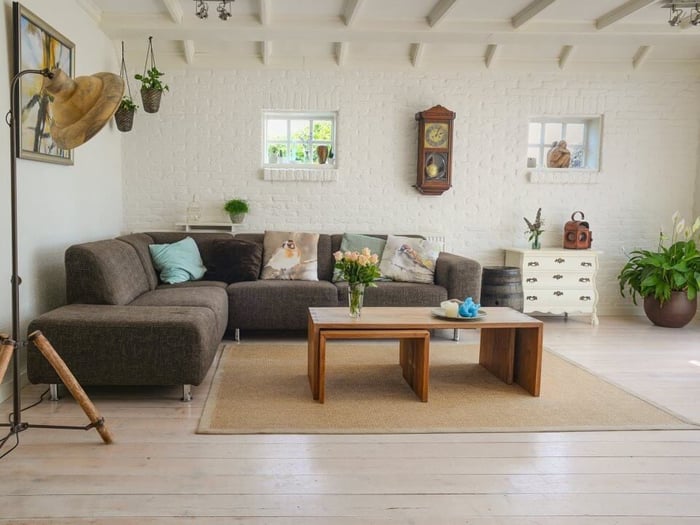One of the many benefits of living in Spain is the wonderful weather and being able to spend a lot of time outside. However, the sun is strong and many of us require a lot of shade in the summer, making it really tempting to put up pergolas to be able to enjoy eating outside, to relax and read a book or to provide much-needed shade for the children to play underneath.

But wait! Before you do anything to your Spanish property…. Did you know that in Spain, to do even minor works or improvements you need planning permission!?
I just need to pause here for a brief moment to say, at the time of writing (January 2024), this information is correct to the best of our knowledge, however, laws change all the time so it is always best to seek professional advice depending on your unique property and situation.
Give us a call if you have any questions and we would be happy to help or recommend experts we know and trust.
In Andalusia, it is necessary to obtain a licence to do any type of construction or maintenance work on your property whether it be putting up a fence, changing tiles or installing new kitchens and bathrooms, you need a licence from your local Town Hall.
There are two types of licences you can apply for:
- The ‘Obra Mayor’ - This is for major works like roofs, supporting walls etc.
- The ‘Obra Menor’ - This is for minor works like tiling a bathroom or refitting a kitchen.
If you have a country property, you must have an AFO or First Occupation License to obtain either a minor or major reform licence.
Please be aware that you cannot legally extend an existing property, or build a swimming pool, on country land, regardless of the specific type of land classification (protected or non-protected land). There are many grey areas whereby some residents have taken risks and may appear to have gotten away with it, however, it’s always best to be cautious.
If any works or improvements are carried out without following the correct procedures, you could be fined, forced to pull it down or return it to its original state, and even criminally prosecuted.

You could end up wasting a lot of money and depending on the “improvements” you’ve made, it could make it complicated to sell your property. Unregistered extensions or pools are not recognised when it comes to the bank valuing your property. The bank will only value the property based on what is registered on the Title deeds at the land registry.
But don’t be downhearted, in most cases it is possible to refurnish your home. You must follow the rules. You need to research the planning rule book in your area. If you speak Spanish, go to the town hall and enquire about their planning procedures and laws. You will need to hire an Architect to draft a building plan and instruct a solicitor to help you. It may sound expensive, but it is crucial to ensure that you are adhering to the planning laws, the advice of an architect will prove to be invaluable! They will ensure that you do not break any building violations.
Spending a little money upfront can save you a lot of money in the long run.
Here are the consequences of not registering your property improvements:
- You could be heavily fined
- You could be forced to demolish any work done
- You could be criminally prosecuted
- You cannot insure unregistered extensions
- You cannot borrow money against unregistered improvements to the property
- The land registry will not recognise unregistered extensions, making your property worth less when it comes to sale, especially if your buyers need a mortgage.
You will need to pay your local town hall for the building licence, whether it is for minor or major reform works. The moment you have this, you can start your project.

Once the construction work is completed, it is highly recommended to register the extension, and improvements on the deeds at the Notary office and at the land registry. Remember, unregistered extensions or pools do not exist when it comes to the bank valuing your property. This is where your solicitor will come in handy. By following the above process, it increases your chances of improving the value of your property and having a straightforward, uncomplicated sale when you come to part with your beloved property.
The 6-year rule:
On the 24th December 2021 a new law was approved whereby any works done without permission on either rustic or rustic protected land can now be legally registered after 6 years. However, there are a few circumstances where building works cannot be registered, for example, if your property is on a floodplain or at risk of erosion, etc.
If you have parts of your property that aren’t registered but have been standing for 6 years or more we would strongly recommend that you get them registered before the next general elections, because if the party changes then this law could be revoked. So act fast if you qualify!
Legally, you cannot build a swimming pool - at all!
If you apply for permission to build one you will be refused. However, if you really, really, really want one you can run the risk of building one secretly. If after 6 years the town hall hasn’t noticed then you can legally register your pool. Yay!
You are also able to build on country land if you have a minimum of 25,000m2 of land, you also need to be more than 500m from your neighbour’s house (in a straight line) and then you can build up to 1% of the plot size. So if you have 25,000m2 of land you can build a 250m2 house.
This law only really applies to places far out in the countryside like El Burgo or Yunquera etc, to be able to find plots of land that are big enough and far enough away from your neighbours.
If you are interested in buying property in Spain but worried about whether a property has all the correct paperwork, give us a call, we are inland property specialists and know exactly what licences each property needs.
Also, if you want to sell your property but need to know what licences you require, need more information or need help obtaining the necessary licences, give us a call and we can put you in touch with the right people.
Simply fill in our contact form or call us on (+34) 951 242 157 and we will be here to help.





